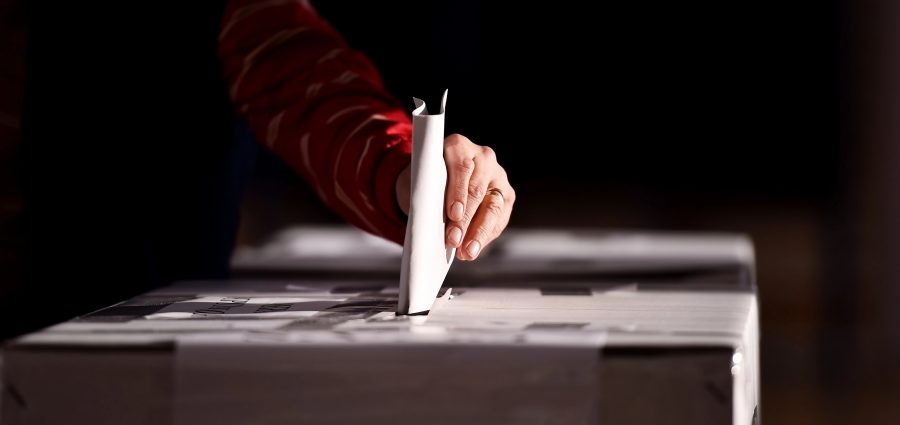With the general election days away, New York City’s Civic Engagement Commission (CEC) and Democracy NYC convened an Ethnic Media Roundtable Wednesday to spotlight language access at the polls and expand voter education for immigrant and limited-English-proficient New Yorkers.
Framing the effort as a mandate from voters themselves, Dr. Sarah Sayeed, the CEC’s chair and executive director, reminded attendees that the commission was created by a 2018 ballot initiative to strengthen civic participation citywide—particularly among communities historically left out of decision-making, including seniors, youth and immigrants.
“We are a nonpartisan agency born of a public vote,” Sayeed said, “and our charge is simple: make civic participation more equitable across New York City.”
What’s New This Election
At the center of the briefing was the Voter Language Assistance Program (VLAP), which deploys interpreters in 12 languages not already covered by the NYC Board of Elections. This cycle, the CEC will provide in-person assistance in Arabic, Bangla, Cantonese/Mandarin, French, Haitian Creole, Italian, Korean, Polish, Russian, Urdu and Yiddish.
Since its launch during the 2020 general election, the program has directly assisted more than 9,000 voters, according to the CEC.
This year’s schedule includes:
- Early Voting: Interpreters stationed at 42 poll sites over the final three days of early voting (Oct. 31–Nov. 2), with several locations offering two languages.
- Election Day (Nov. 4): Interpreters at 88 poll sites citywide.
Coverage will be heaviest in Brooklyn, with additional sites in the Bronx, Queens and Staten Island. Manhattan is not slated for CEC interpreter coverage this cycle because federal Voting Rights Act requirements and the Board of Elections already provide services there in key languages such as Chinese and Korean.
Spanish, the most requested language citywide, is federally mandated and provided by the Board of Elections at poll sites in all five boroughs.
Know Your Rights: Bring an Interpreter
Anila Cobo, the program’s director, emphasized a right many voters don’t know they have: Any voter may bring an interpreter of their choice—a friend or family member—to assist in the booth, so long as that person is not the voter’s employer or union representative.
“We fill gaps where federal mandates don’t reach,” Cobo said. “But even beyond our services, New Yorkers should know they can vote in their language with someone they trust at their side.”
The commission also noted that the Board of Elections often assigns bilingual poll workers, adding another layer of language support even where formal interpreter services aren’t deployed.
Beyond Election Day: Building Civic Power
Officials used the roundtable to brief ethnic media on three additional CEC programs designed to widen participation:
- Participatory Budgeting (“The People’s Money”): New Yorkers age 11 and up, regardless of citizenship, can submit ideas now for next year’s funding ballot. Ideas are vetted over the winter by borough assemblies, voted on in the spring, and implemented the following fall by community organizations. Projects selected in the last cycle are currently being rolled out.
- Community Board Training & Support: The CEC provides training for members of the city’s 59 community boards on parliamentary procedure, zoning and land-use basics, disability rights, anti-discrimination laws and more—skills essential to running effective public meetings and weighing local policy.
- Neighborhood Partnerships: The agency works in neighborhoods identified for racial inclusion and equity to strengthen coalitions and civic infrastructure, aiming to close persistent gaps exposed and deepened by the pandemic.
Resources for Voters and Media
To help community leaders and outlets reach voters in multiple languages, the CEC maintains a multilingual digital toolkit with printable posters, palm cards, social assets and explainer language across the program’s 12 languages, as well as a “Vote in Your Language” public-service video.
- Program info: on.nyc.gov/vla
- Multilingual toolkit: on.nyc.gov/vlatoolkit
Officials added that CEC speakers are available for community events, information sessions and media briefings upon request.
Language Should Never Be a Barrier to the Ballot
As Election Day approaches, the CEC’s message is straightforward: No New Yorker should be shut out of the democratic process because of language. Between Board of Elections services, CEC interpreters and the legal right to bring a trusted interpreter, city officials say the tools are in place—now the focus shifts to awareness and turnout.
“Democracy is strongest when every voice is heard,” Sayeed said. “That means every language, every borough, every voter.”
Featured image credit: DepositPhotos.com








